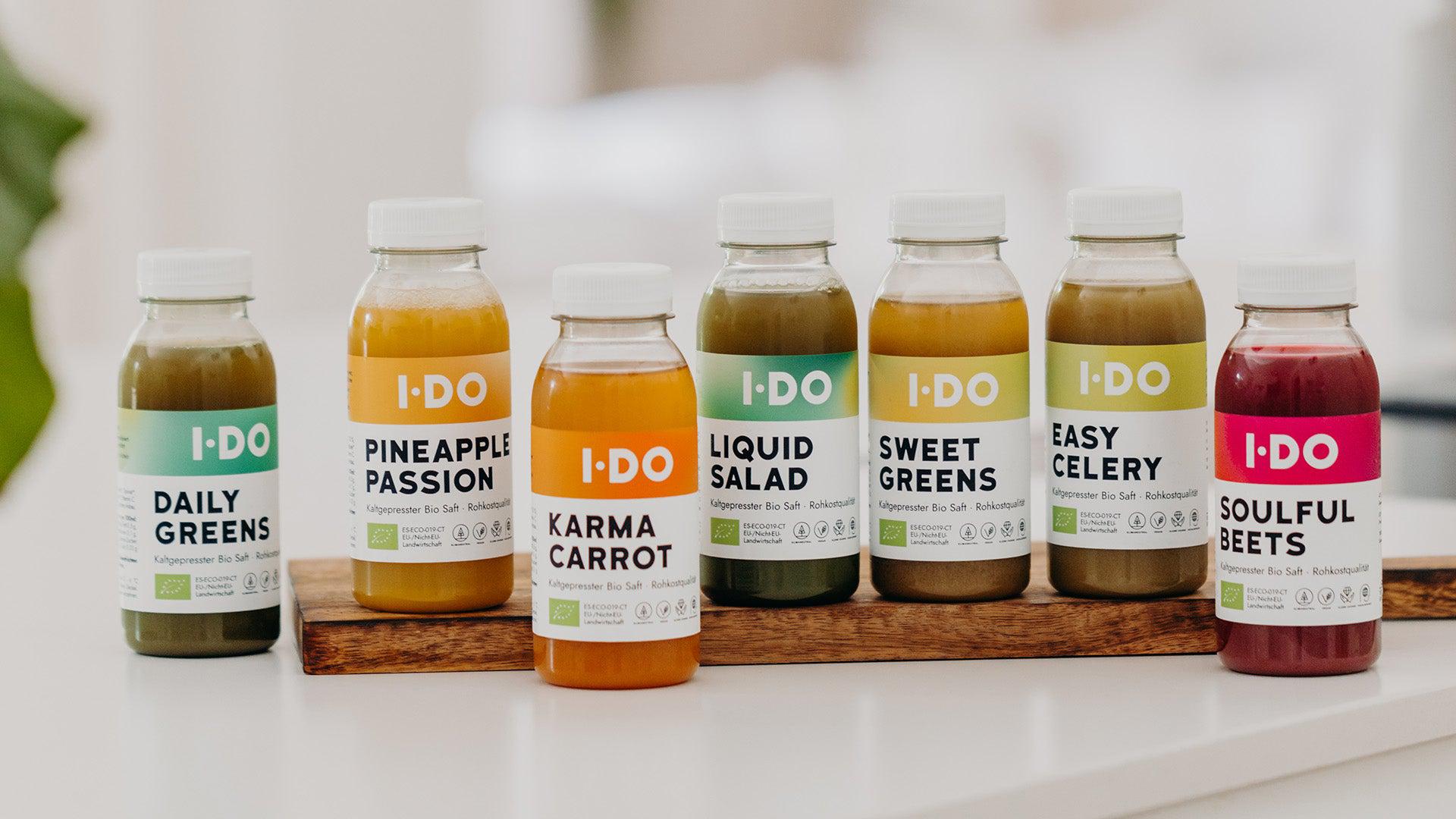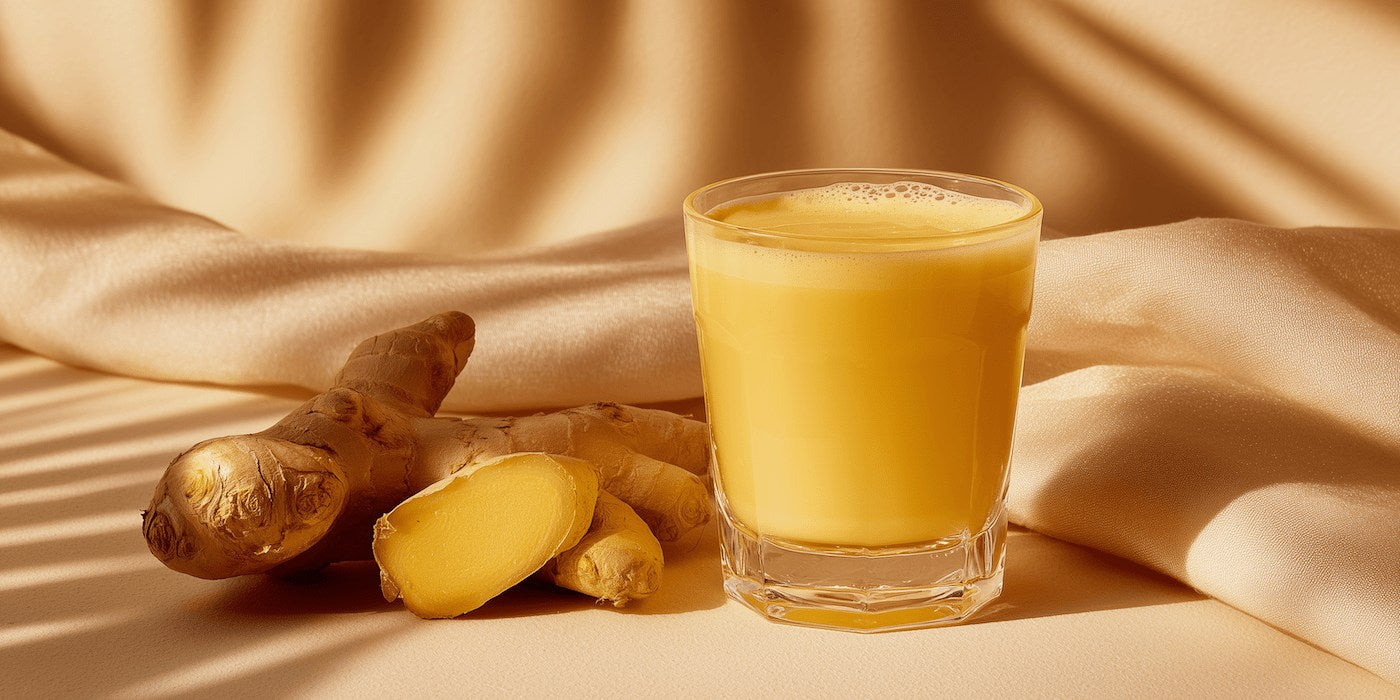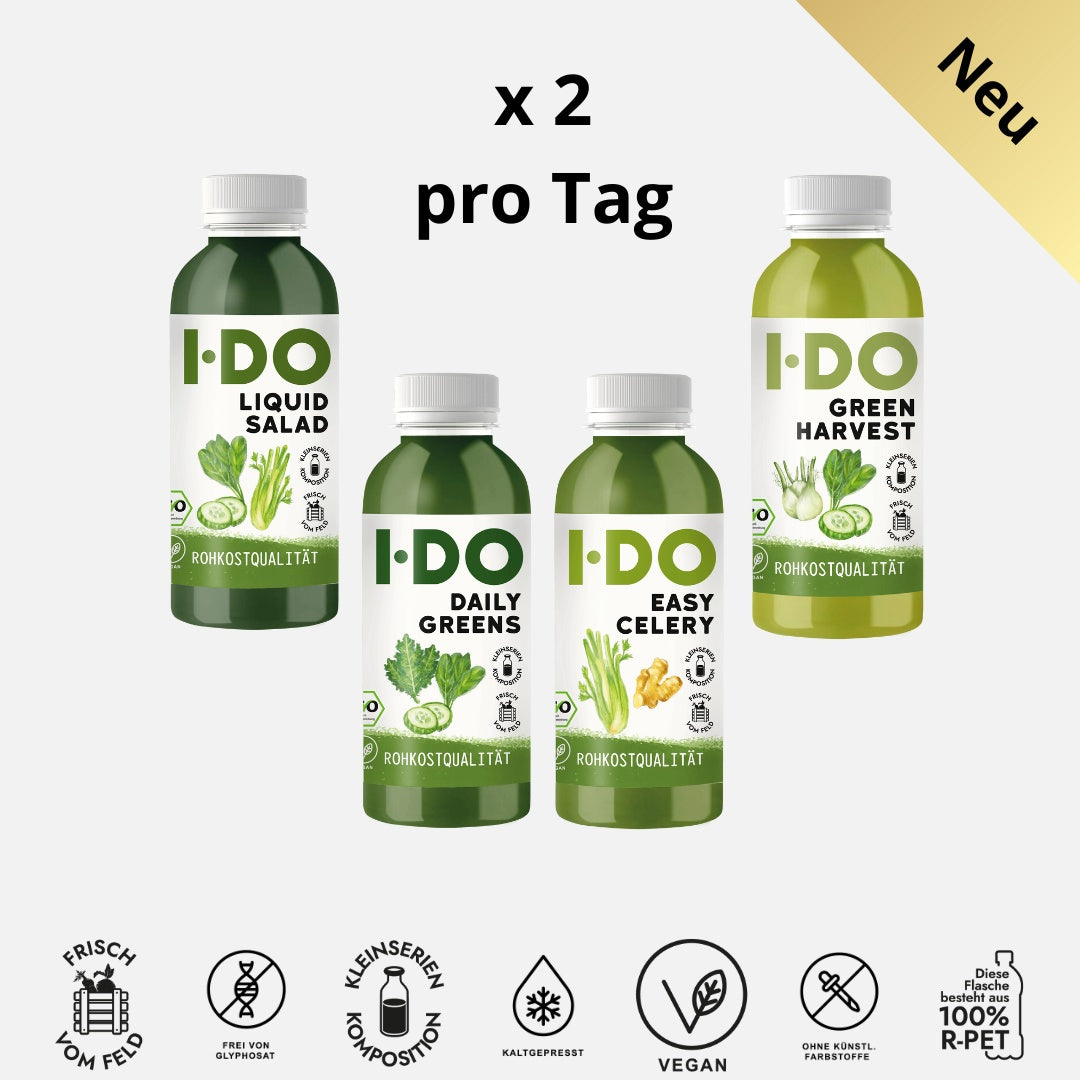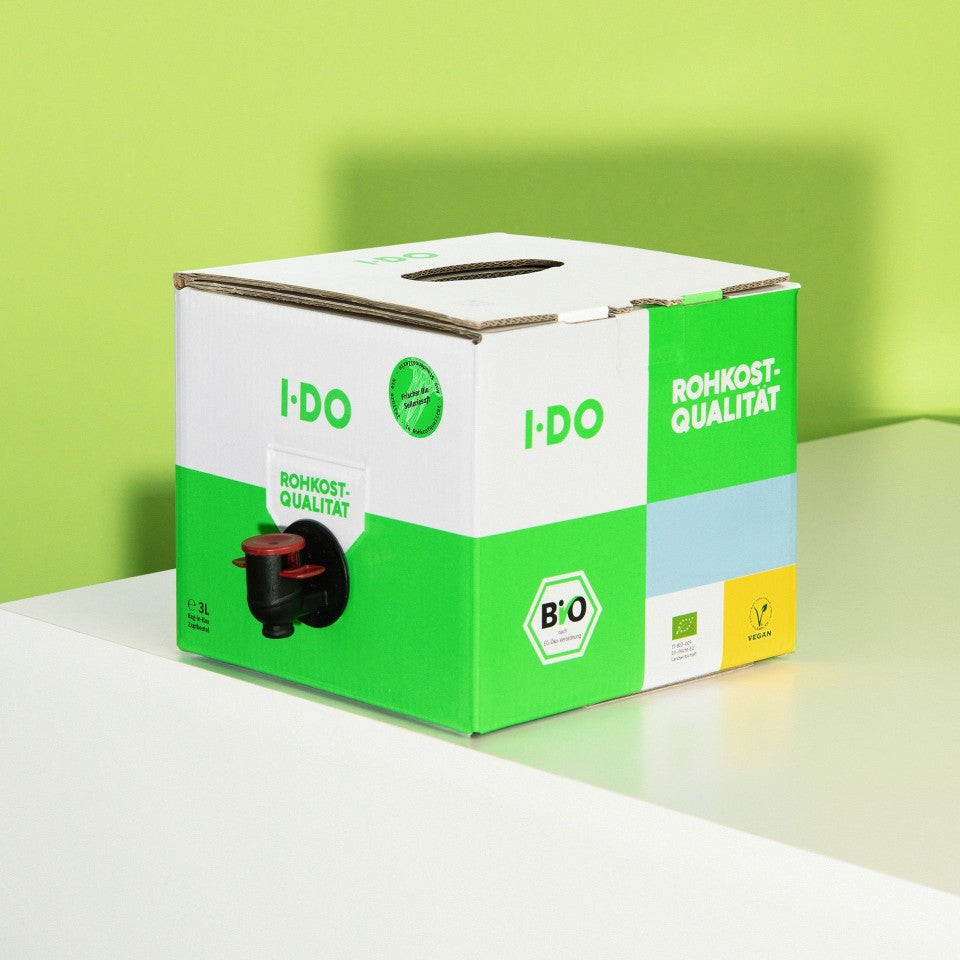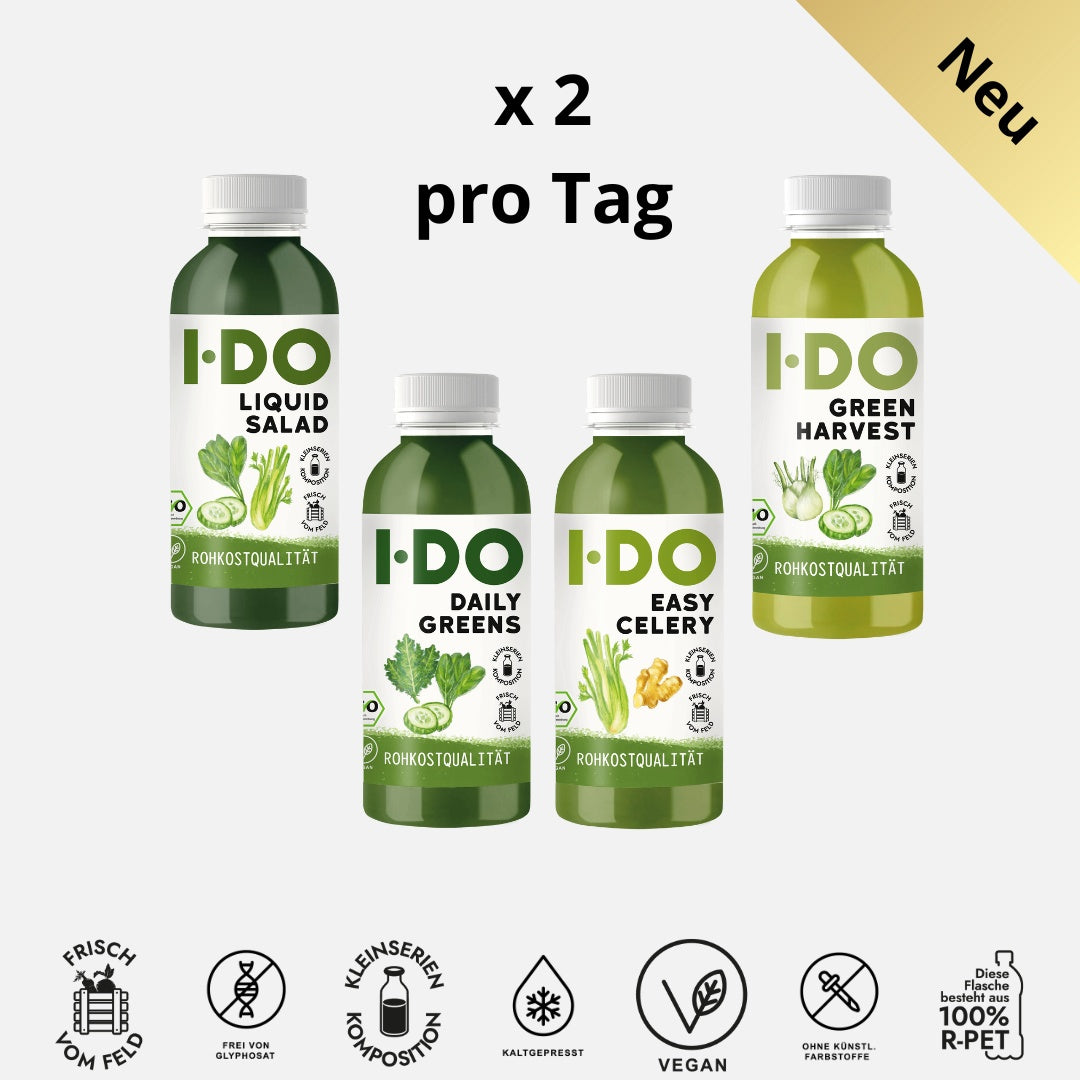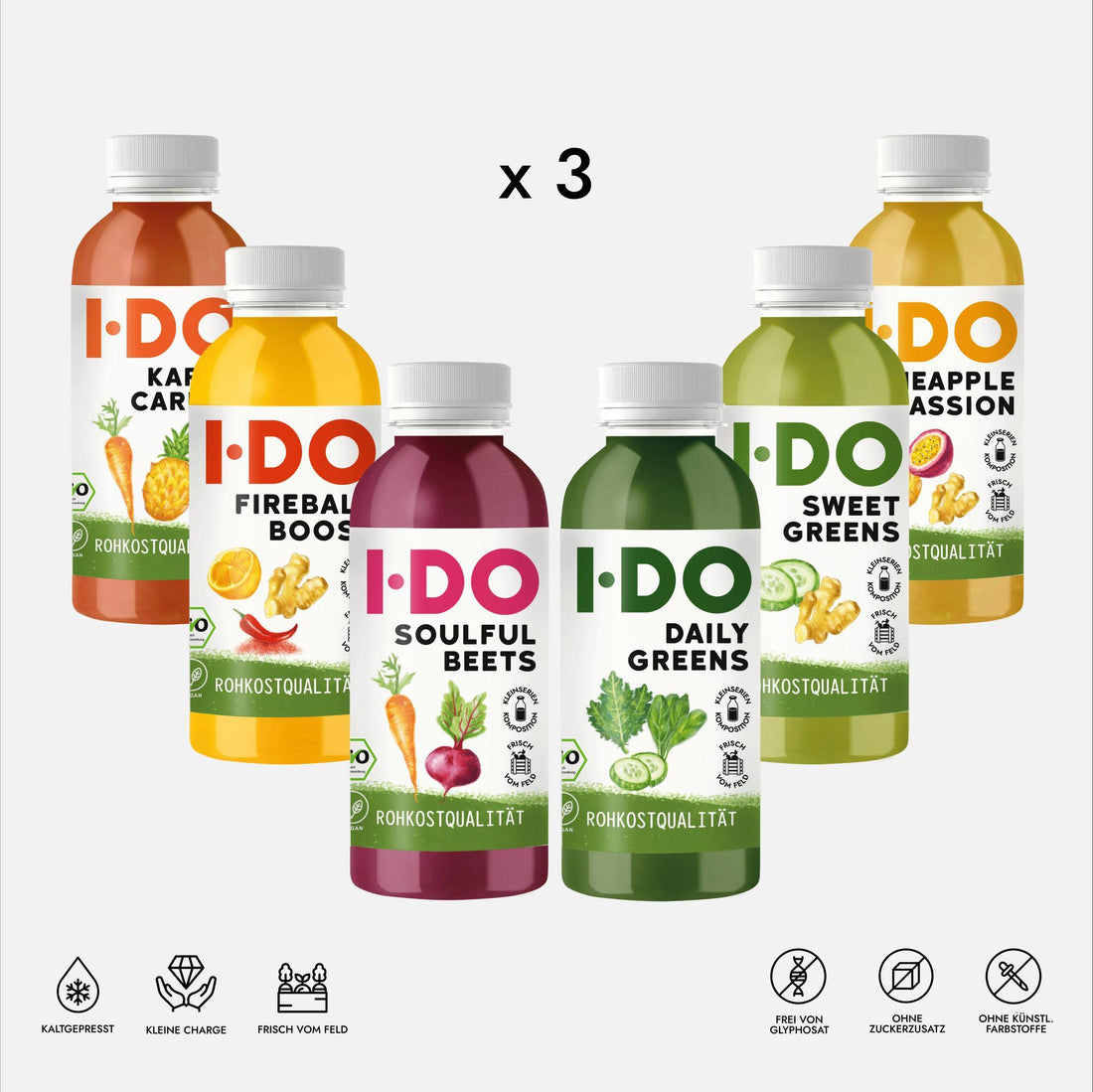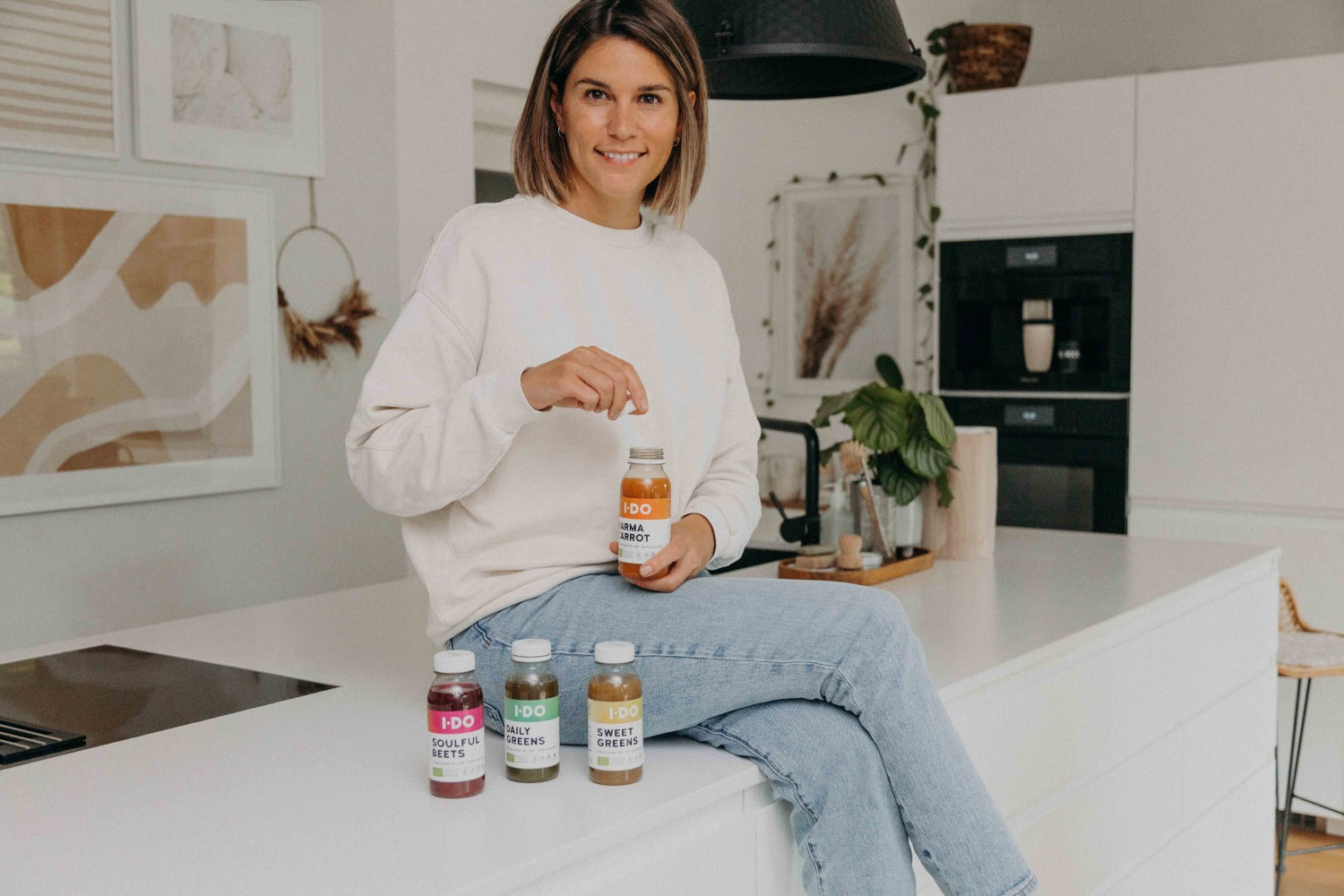How does a juice cleanse actually work, and what should I pay attention to? Which juices are suitable, and what side effects can occur? We've addressed the twelve most important questions about juice cleanses – and answer them for you in this article.
1. What is a juice cleanse and what are its benefits?
A juice cleanse is a modified form of therapeutic fasting: For several days, solid food is completely abstained from. Instead, approximately 800 calories are consumed daily in the form of fruit and vegetable juices. This reduced energy intake activates autophagy , the self-cleaning process of the cells. As a result, the body's own regenerative processes are triggered, eliminating toxins.
A juice cleanse can therefore be understood as a kind of reset for the body. This restart can help to break bad eating habits, reduce stress, or start a new phase of life with renewed energy.
2. How does a juice cleanse work?
So much for the theory. But how exactly does a juice cleanse work? The cleanse begins with a few days of preparation , during which you prepare yourself physically and mentally for the fast. During this time, you should avoid heavy foods, stop consuming alcohol and coffee, and boost your metabolism. This helps to curb hunger and appetite beforehand and makes it easier to stick to the juice cleanse.
During the fasting phase , you consume two liters of juice daily: With an I·DO juice cleanse, you pamper your body with a blend of raw fruit and vegetable juices. These juices contain numerous vitamin boosters that also taste delicious. We recommend enjoying a juice every two hours. In between, drink plenty of water and unsweetened tea.
After a juice cleanse, the body needs to readjust to solid food. Therefore, the first few days should not include heavy, fatty meals. Lighter foods such as salads and soups are better.
3. Which juices are suitable for a juice cleanse?
Basically, there are two options for a juice cleanse at home: You can do the cleanse yourself and freshly juice the required drinks daily using a juicer. Or you can opt for a ready-made cleanse that already contains all the juices for the desired duration. While the latter option may be slightly more expensive, it's significantly less work. After all, the juices arrive at your door already pressed and perfectly balanced. For example, I·DO juice cleanse boxes contain a delicious blend of fruits and vegetables – all cold-pressed and of high-quality organic origin.
A juice cleanse should generally consist of pure juices without additives and contain a balanced mix of fruits and vegetables. This ensures that the body receives essential nutrients despite the fasting period. A juice cleanse with smoothies is not recommended, as the digestive tract has to work harder due to the fiber content – consequently, the desired break for the intestines is less pronounced.
4. What can you eat during a juice cleanse?
While light meals are permitted on the preparation and follow-up days, solid food is completely avoided during the juice cleanse. Coffee and sugary drinks are also forbidden. In addition to the juices, adequate water intake is therefore particularly important. For a bit of flavor and an extra boost of freshness, we recommend homemade vitamin water , for example with cucumber and mint or ginger and lemon. To warm up a little, unsweetened teas or a cup of vegetable broth are suitable.
Tip: If you really can't stand the hunger anymore or your circulation gives out, a teaspoon of honey can work wonders.
5. How long does a juice cleanse make sense?
We believe that a proper juice cleanse should last at least five days to allow the positive effects of fasting to become apparent. Beginners can easily start with a shorter fasting period . The 3-day and 5-day cleanses are particularly popular. Experienced fasters often abstain for up to two weeks. At I·DO, you have the option of tailoring a juice cleanse to your individual needs and goals: break from everyday life for 3, 5, or 6 days.
6. How often can you do juice cleanses?
How often you can do a juice cleanse is a very individual decision. A common recommendation is once or twice a year , although more frequent juice fasts are also possible. In any case, there should be a break of about three months between cleanses to allow the body to regenerate and strengthen. If you are unsure, it is best to discuss the length and number of cleanses with a doctor.
7. Who is a juice cleanse suitable for?
A juice cleanse is suitable for all adults who want to give their body and mind a break or change their eating habits. Anyone suffering from an illness such as metabolic disorders or chronic conditions should consult a doctor before starting a juice cleanse. Pregnant and breastfeeding women should refrain from fasting.
Soothing organic juice cleanses with raw food juices
8. When should you do a juice cleanse – and when not?
Basically, you can start a juice cleanse anytime, anywhere, provided your body is properly prepared. Many people begin a juice cleanse to break bad eating habits or to improve their overall well-being, for example, around the New Year or as a break during a vacation.
Since the body receives very little energy during a juice cleanse, it's important to choose a time when you can dedicate ample time to yourself. Constantly rushing from one meeting to the next is rather counterproductive during a juice cleanse. It's also best to postpone the cleanse if you have any physical ailments or are ill.
9. Can you lose weight with a juice cleanse?
Juice fasting is not a diet in the sense of aiming for weight loss . Rather, it's about cleansing the body, boosting metabolism, and improving overall well-being. Nevertheless, many people fasting do lose weight during the food-free phase. This is largely water retention, which decreases due to the detoxifying effect of the juice cleanse. Therefore, a juice cleanse should be used less for weight loss and more as a conscious introduction to a new, healthier way of eating.
10. Can I exercise during a juice cleanse?
Absolutely! Exercise is especially beneficial during the treatment, as it stimulates the metabolism and releases endorphins. However, moderation is key. Yoga, Pilates, and long walks are particularly suitable. It's best to save strenuous HIIT workouts for later.
11. What side effects can occur?
Due to the energy deficit, prolonged juice cleanses can lead to mild side effects . For example, sensitivity to cold may be increased, as the body has less energy available and warming meals are lacking. Headaches, dizziness, and general malaise can also occur, but are not guaranteed. Sometimes, the dietary change manifests as a worsening of the skin's condition. However, all these side effects should not last longer than the actual cleanse and should subside after a few days. If any problems arise, it is best to consult a doctor.
12. And what does science say about juice cleanses?
Similar to therapeutic fasting and intermittent fasting , juice cleanses are also controversial from a scientific perspective. Frequently promised effects have not yet been substantiated, primarily due to a lack of clinical human studies on this topic. Furthermore, the German Nutrition Society affirms that the body is capable of cleansing itself without assistance. Nevertheless, a juice cleanse can serve as a starting point for changing eating habits.
Drinking freshly squeezed organic juices is certainly not unhealthy. We believe that a multi-day juice cleanse is a welcome change and a challenge that makes us rethink our eating habits and strengthens our awareness of our bodies. Ultimately, of course, mindset and personal experience with the juice cleanse also play a role.
Text: Janina Widhammer-Zintl


